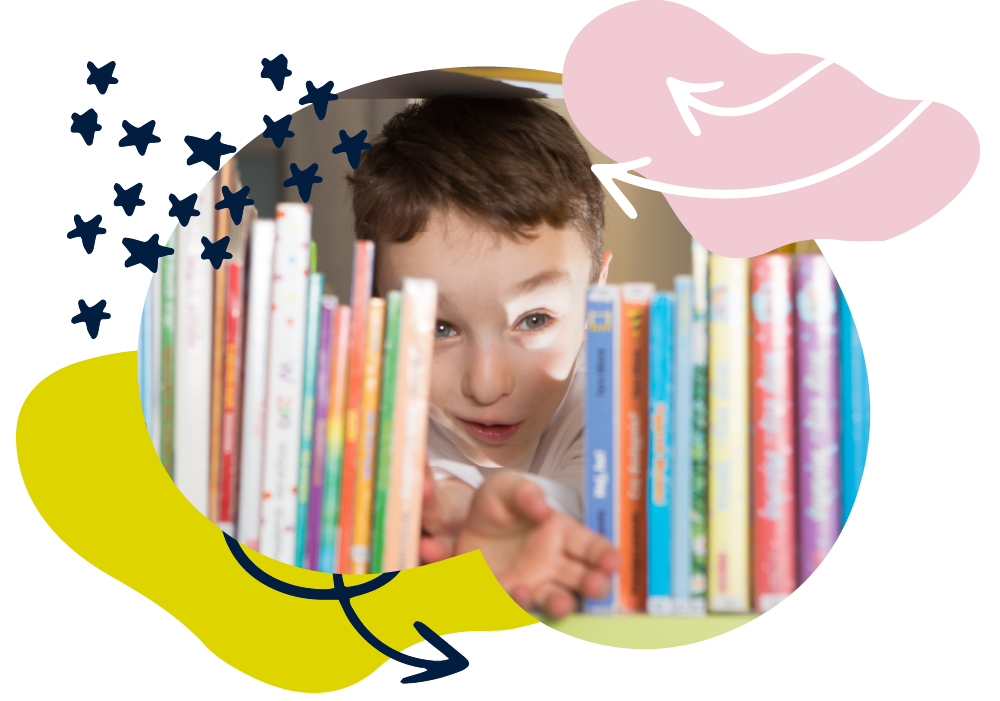Supporting reading in Year 5 (Age 9-10)
In Year 5 (in England) or Primary 6 (in Scotland), your child will be encouraged to read widely. This way, they will become familiar with many different types of language and writing. They will talk about and explore their understanding of a wide range of books including stories, non-fiction, poetry, and play-scripts.
How to help at home
There are plenty of simple and effective ways you can help your child with reading in Year 5/Primary 6.
Keep reading to your child as long as possible
At this age, it is tempting to leave your child to get on with reading on their own. But hearing a story read to them is still very important for developing their comprehension. Here are a few reasons why:
- Hearing a story read out loud means that your child can have access to books that may as yet be too challenging to read alone. These challenging texts will help to develop their comprehension skills.
- Left to their own devices, your child might tend to pick lots of similar texts to read (for example, books from a favourite author or magazine). Reading aloud to your child gives you the opportunity to introduce them to books that they might not choose to pick up themselves, exposing them to a wider range of stories and types of text.
- Listening to an adult read gives a model for fluent reading. It allows your child to hear how a skilled reader uses expression, bringing the words on the page to life.
- Reading together gives your child time to discuss ideas and share opinions about what you’re reading. This is great, as it helps children to think deeply about a text and practise explaining their opinions.
Listen to your child read
Even though your child is likely to be an independent reader, it’s still helpful to listen to them read. It means you can help them with unfamiliar words and talk together to make sure that they understand the book. You could read their school reading book with them or ask them to share with you something that they are reading for themselves, a magazine they have or even something linked to a favourite video game.
Read a wide variety of books
Encourage your child to choose texts with a variety of formats and layouts. Lots of children have favourite authors and genres, but it can be helpful to expand into new types of books every so often – and be sure not to neglect non-fiction texts, such as magazine articles, brochures, adverts, newspaper columns, signs, and notices.
Showing your child lots of kinds of texts will give them experience reading in a real-world context, and will also prepare them for national assessments where they are expected to engage with a wide variety of text types. Make sure you talk together about how the texts are presented – the writing will look different depending on what type of text it is from.
Listen to audiobooks
If you feel like you spend half your life driving your children around, listening to an audiobook together can be a great use of this time. It will give you a shared experience and can introduce your child to new books that they might not choose for themselves. A professional reader often can really bring out the meaning in more complex books.
Join reading clubs and groups
Give your child as many opportunities as possible to share reading ideas and recommendations. This way they can share the excitement of reading – through a variety of clubs, groups, festivals, and so on. Visit your library and bookshop for information.
Use pictures to talk about stories
Pictures are still a great way for your child to practise their comprehension skills, even as they get older. Graphic novels, picture books for older readers, non-fiction books (including ones about fictional beings such as dragons or monsters) and some illustrated stories all have images that can be discussed. Look for some interesting ideas here.
Read for a purpose
As well as reading for pleasure, your child is likely to need to read for particular purposes in Year 5. They will read to find information, to learn about something, or to answer questions. Practising this can be useful for success at school.
Your child may be asked to investigate a topic or find answers to questions set in class. You can help them with their research skills by talking about where to look to find the answers, although you may need to remind them to look in books and use the library as well as the internet. Children can struggle with information overload so they need your help to ‘search and sift’ both sites and information to make decisions.
Don't give up!
In Year 5, children’s enthusiasm for reading can begin to dip. One way to keep them reading is to be a reading role model yourself. Showing them that you read – a book, magazine, or even a football website – helps them to see reading as a purposeful activity.
As your child reads read more difficult books, there might be times when they struggle and may be reluctant to continue. You can help them through those patches by reading a bit with them to get them started or hooked into the next chapter. Always balance this with sensitivity and valuing their choice – it’s got to be fun!
Read our blog on Encouraging reluctant readers for more information and advice.
Free eBook Library
Find a huge selection of free eBooks perfect for older readers to encourage your child to read and support their reading journey. Take a look >

